Tough Traveling: Dead Gods

The Thursday feature “Tough Traveling” is the brainchild of Nathan of Review Barn, who has come up with the excellent idea of making a new list each week based on the most common tropes in fantasy, as seen in (and inspired by) The Tough Guide to Fantasyland by Diana Wynn Jones. Nathan has invited anyone who is interested to come play along, so be sure to check out the first link for more information.
This week’s tour topic is: Dead Gods
Fantasyland had gods, right? And now they are dead. Dead Gods are not forgotten though, often they are still just influential to the land as they were when living.
Mogsy’s Picks:
Thousands of years ago, gods warred and after their conflict, the dead or dying ended up scattered across the world, becoming features of the land. Mirea is a city built by a massive stone wall that spans a mountain range which houses the body of one of these gods. Since then, people have awakened with spectacular powers that are derived from the fallen gods’ bodies.
Gods can’t die, right? Wrong. The Greek gods of old are dead or slowly dying, falling victims to the most horrific, bizarre fates. Demeter, goddess of harvest and fertility of the earth is being stretched across the earth to the point of ripping, Athena is experiencing impending death by way of random feathers sprouting in her body like a cancer, and Hermes’ is starving to death as his own body devours itself.
 Preacher by Garth Ennis and Steve Dillon
Preacher by Garth Ennis and Steve Dillon
The Saint of Killers is the Patron Saint of Murderers and Assassinations. Originally a Confederate soldier in the Civil War, when his wife and daughter fall ill he attempts to fetch medicine for them, only to be delayed by bandits. His family dies as a result. The Saint subsequently slaughters the bandits, but is himself killed in the conflict. After he learns that God arranged for his family to die in order to set him on the path towards Sainthood, he vows revenge. Not going to spoil the ending, but…well, you can guess.
 Promise of Blood by Brian McClellan
Promise of Blood by Brian McClellan
Can’t really say much about the dead gods in this series without revealing spoilers, but know that there’s a pantheon of them whom a character kills and then steals their powers. More is revealed later on about the death and killing of gods, which becomes significant when the god Kresimir manifests in a body on earth and one of the protagonists, Taniel, tries to kill him at the end of the first book.
 Three Parts Dead by Max Gladstone
Three Parts Dead by Max Gladstone
This book begins with the murder of a god. After the fire god Kos dies, the city of Alt Coulumb starts falling apart as steam generators shut down and transportation stops running. The people begin to riot and tear the city apart, and its up to Tara, first year associate in the international necromantic firm of Kelethres, Albrecht, and Ao to resurrect Kos and stop the chaos and destruction.
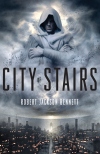 City of Stairs by Robert Jackson Bennett
City of Stairs by Robert Jackson Bennett
Years ago, magic was lost in the city of Bulikov, then known as the Seat of the World before the coming of a great Saypuri hero called the Kaj. Six gods known as the Divinities each had their own worshippers who lived by the rules and ideologies of the god they followed. After the Kaj killed the Divinities, Bulikov was devastated by an event known as the Blink, causing chunks of the city to disappear or warp and resulting in a section filled with giant staircases that went nowhere.
The magical world of Fillory is home to the twin ram gods Ember and Umber. Protagonist Quentin discovers a book belonging to Rupert Chatwin containing memoirs of his adventures in Fillory, including an account of how his older brother Martin Chatwin becomes more and more desperate as the gods turn their backs on him and stop sending for him. It is believed that Martin killed Umber a long time ago, after the angry young man manages to find his way back to Fillory.
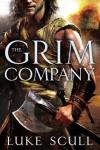 The Grim Company by Luke Scull
The Grim Company by Luke Scull
The gods are dead. Five hundred years ago, the magelords and their magically enhanced troops led by the tyrant Salazar assaulted heaven itself and killed them all, becoming the rulers of the world. However, when the gods died, so did magic. What’s left of it is in the dying bodies of the magelords over which they fight each other to control, and it’s just unpleasant for all the ordinary people living under them in a state of poverty and neglect.
Tiara’s Picks
I’m not going to say all these gods are “technically” dead, so I took a little freedom there and defined it as not only dead, but just no longer walk the earth for various reasons. Some have just abandoned humanity to their fate for reasons unknown, usually speculation that humans have offended them in some way. They are gone, but not forgotten. And there’s a divide whether people believe they are dead or not in most cases. I tried to stay away from some of the more obvious choices (like A Song of Ice and Fire) since I’m sure I’ll be seeing them on many lists, so here are my picks.
 Termana (The Dead Gods Trilogy by Richard Lee Byers) – On first glance, this might remind some of Dragon Age‘s elves predicament with their gods and beliefs, but it predates that by some years, though. A savage war between Titans and gods erupt, killing the elven god Termana in the war. Along with his death, elves lose much of their purpose including their immortality. One elf, a high priest to the god named Vladawen, seeks to bring him back. Resurrection, however, is never without its costs, but it may be worth it to bring back a dead god.
Termana (The Dead Gods Trilogy by Richard Lee Byers) – On first glance, this might remind some of Dragon Age‘s elves predicament with their gods and beliefs, but it predates that by some years, though. A savage war between Titans and gods erupt, killing the elven god Termana in the war. Along with his death, elves lose much of their purpose including their immortality. One elf, a high priest to the god named Vladawen, seeks to bring him back. Resurrection, however, is never without its costs, but it may be worth it to bring back a dead god.
 The Infinite – (The Tankborn Trilogy by Karen Sandler) – This is very much a science fiction book. However, there is a strong theistic backing to these books as well. GENs, the genetically altered humans (and slaves essentially), and trueborns, “pure” humans, both have a faith, but their belief system differs. GENs believe in a god who will reward them in the afterlife for serving humans well. Trueborns believe he’s dead and/or never existed. To say anything more would be to spoil the book. I imagine The Infinite to look like the Paragon (the one with the wings; in the foreground is a dervish that I’m going to pretend is Kayla from this novel, okay) in this Guild Wars picture:
The Infinite – (The Tankborn Trilogy by Karen Sandler) – This is very much a science fiction book. However, there is a strong theistic backing to these books as well. GENs, the genetically altered humans (and slaves essentially), and trueborns, “pure” humans, both have a faith, but their belief system differs. GENs believe in a god who will reward them in the afterlife for serving humans well. Trueborns believe he’s dead and/or never existed. To say anything more would be to spoil the book. I imagine The Infinite to look like the Paragon (the one with the wings; in the foreground is a dervish that I’m going to pretend is Kayla from this novel, okay) in this Guild Wars picture:

How The Infinite appears in my head. Credit.
 The Gods of Mt. Olympus (God of War by Sony) – Kratos, the Ghost of Sparta, is tasked with killing the god Ares. When he’s completed the deed, he is granted Ares’ power and becomes the new god of war. Some of the other gods decide they don’t like this much and decide to betray him. Kratos’ response to this madness? (I’m sure a good “THIS IS SPARTA!” joke should go here, but I’ll not try to be punny right now.) “You just bought yourself a metric fuckton of rage, son.” So, he decides to kill all the gods, and his god/demigods/mystical creatures count is going way up. You don’t just give a man known as The Ghost of Sparta, a man who already had anger issues, the powers of a war god and not expect him not to kill you with his bare hands. What I like about these novels/games is that they try to give an explanation about why these gods no longer exist… which is basically because Kratos turned all the way up to 199.99% badass (he was already 100% badass before that) and starting killing them like the epic beast of a man (or rather, god) he is.
The Gods of Mt. Olympus (God of War by Sony) – Kratos, the Ghost of Sparta, is tasked with killing the god Ares. When he’s completed the deed, he is granted Ares’ power and becomes the new god of war. Some of the other gods decide they don’t like this much and decide to betray him. Kratos’ response to this madness? (I’m sure a good “THIS IS SPARTA!” joke should go here, but I’ll not try to be punny right now.) “You just bought yourself a metric fuckton of rage, son.” So, he decides to kill all the gods, and his god/demigods/mystical creatures count is going way up. You don’t just give a man known as The Ghost of Sparta, a man who already had anger issues, the powers of a war god and not expect him not to kill you with his bare hands. What I like about these novels/games is that they try to give an explanation about why these gods no longer exist… which is basically because Kratos turned all the way up to 199.99% badass (he was already 100% badass before that) and starting killing them like the epic beast of a man (or rather, god) he is.
 The Giver (Acacia: The War with the Mein by David Anthony Durham) – The Giver is believed to have created all things including humans. However, the language he used to speak the world into existence was never meant to be used by mortal tongues. One human who was close to him did learn the language, though, but the human tongue is not meant to shape words that can destroy and create worlds. The Giver leaves the earth, leaving his creations to fend for themselves. The book that contains knowledge of his magic is hidden away, and with that, humans are left believing the magic and The Giver could be fake, especially the magic–since no one uses magic…
The Giver (Acacia: The War with the Mein by David Anthony Durham) – The Giver is believed to have created all things including humans. However, the language he used to speak the world into existence was never meant to be used by mortal tongues. One human who was close to him did learn the language, though, but the human tongue is not meant to shape words that can destroy and create worlds. The Giver leaves the earth, leaving his creations to fend for themselves. The book that contains knowledge of his magic is hidden away, and with that, humans are left believing the magic and The Giver could be fake, especially the magic–since no one uses magic…
 Enefa (The Hundred Thousand Kingdoms by N.K. Jemisin) – Before the start of this book, Enefa–the goddess of balance, life and death, dusk and dawn–is murdered many thousands years before. The other gods, aside from one, have become the slaves to their own creations. Enefa is was one one of the gods considered The Maelstrom, represented by three high level gods who have absolute power. The gods below them are actually their offspring and called godlings. They (the godlings) take on more traditional roles of having something they’re known for (such as being the goddess of war or the trickster god).
Enefa (The Hundred Thousand Kingdoms by N.K. Jemisin) – Before the start of this book, Enefa–the goddess of balance, life and death, dusk and dawn–is murdered many thousands years before. The other gods, aside from one, have become the slaves to their own creations. Enefa is was one one of the gods considered The Maelstrom, represented by three high level gods who have absolute power. The gods below them are actually their offspring and called godlings. They (the godlings) take on more traditional roles of having something they’re known for (such as being the goddess of war or the trickster god).
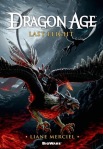 The Elven Pantheon (Dragon Age by BioWare) – A rather unique set of gods as they supposedly (there may or may not be evidence to prove otherwise) never walked the earth–or so the elves say. They call them the “creators,” but say that the gods themselves were created by something else. The gods gave gifts to the worlds. They are lost to them now, tricked by one of their own, betrayed by Fen’Harel ( the Dread Wolf). Even though no one is certain of their true fate, the elves believe they reside in a placed called the Fade (a dreamlike world) in the Eternal City there imprisoned not killed. However, some could, in fact, be dead if we go by some of the recent game/book lore. On that note, we have…
The Elven Pantheon (Dragon Age by BioWare) – A rather unique set of gods as they supposedly (there may or may not be evidence to prove otherwise) never walked the earth–or so the elves say. They call them the “creators,” but say that the gods themselves were created by something else. The gods gave gifts to the worlds. They are lost to them now, tricked by one of their own, betrayed by Fen’Harel ( the Dread Wolf). Even though no one is certain of their true fate, the elves believe they reside in a placed called the Fade (a dreamlike world) in the Eternal City there imprisoned not killed. However, some could, in fact, be dead if we go by some of the recent game/book lore. On that note, we have…

Shrine of Fen’Harel. Credit
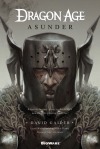 The Maker and Andraste (DragonAge by Bioware) – The Maker is the human god who is believed to have turned away from them after his creations fell out of favor with him. However, Andraste, the most devout of his followers, his prophet, and his human bride pleaded for him to have mercy on humans. Her words shaped the beliefs humans hold for The Maker. However, after humans burned Andraste, he turned from the world again. The humans of Thedas believe he will not return to them, answers their prayers, or show them any favor until they have done something to regain his love and trust. The Chantry (the church basically) teaches that when the Chant of Light is sung in every part of the world, he will finally return and turn it into an eternal paradise. For now, however, his fate and existence is up in the air. Andraste while technically not a god is revered and worshiped as much as The Maker. She’s more of a Jesus Christ figure.
The Maker and Andraste (DragonAge by Bioware) – The Maker is the human god who is believed to have turned away from them after his creations fell out of favor with him. However, Andraste, the most devout of his followers, his prophet, and his human bride pleaded for him to have mercy on humans. Her words shaped the beliefs humans hold for The Maker. However, after humans burned Andraste, he turned from the world again. The humans of Thedas believe he will not return to them, answers their prayers, or show them any favor until they have done something to regain his love and trust. The Chantry (the church basically) teaches that when the Chant of Light is sung in every part of the world, he will finally return and turn it into an eternal paradise. For now, however, his fate and existence is up in the air. Andraste while technically not a god is revered and worshiped as much as The Maker. She’s more of a Jesus Christ figure.

The Maker and Andraste. Credit
 God (Silent Hill by Konami) – God in the Silent Hill games, comics, and novels isn’t quite like the God we know in our world. First, she’s always a woman. Second, she really is dead (or something like dead), but her followers try to resurrect her in a chosen female host. Third, she’s considered more of a sun god, even though her cult believes her to be the creator of all things. God, when possessing a host, is not lovable or benevolent. There’s belief she just may be a monster who takes a female body because women are seen as nurturers and inviting, even though God doesn’t even TRY to be any of those things even in a host. Even after having to fight her, you never really find out if she’s real or not. She’s just dead until she gets to her next host.
God (Silent Hill by Konami) – God in the Silent Hill games, comics, and novels isn’t quite like the God we know in our world. First, she’s always a woman. Second, she really is dead (or something like dead), but her followers try to resurrect her in a chosen female host. Third, she’s considered more of a sun god, even though her cult believes her to be the creator of all things. God, when possessing a host, is not lovable or benevolent. There’s belief she just may be a monster who takes a female body because women are seen as nurturers and inviting, even though God doesn’t even TRY to be any of those things even in a host. Even after having to fight her, you never really find out if she’s real or not. She’s just dead until she gets to her next host.

One depiction of God in Silent Hill. Credit.
 The Six Human Gods (Guild Wars 2 by ArenaNet) – Originally, there were six original gods the humans worshipped in the books/games for Guild Wars. Dwayna (god of healing). Balthazar (god of war, fire, and courage). Melandru (goddess of nature, earth, and growth) Twins Lyss and Ilya who make up one god called Lyssa (goddesses of beauty, water and illusion). Grenth (god of darkness, death, and ice).
The Six Human Gods (Guild Wars 2 by ArenaNet) – Originally, there were six original gods the humans worshipped in the books/games for Guild Wars. Dwayna (god of healing). Balthazar (god of war, fire, and courage). Melandru (goddess of nature, earth, and growth) Twins Lyss and Ilya who make up one god called Lyssa (goddesses of beauty, water and illusion). Grenth (god of darkness, death, and ice).
Kormir (goddess of order, spirit, and truth). Koromir is unique among these gods as she was a human who gained the powers of Abbadon who had been banished by the other gods because he started using his powers to corrupt. Koromir killed him and became the new goddess of knowledge. These gods have left humanity by the start of the second game for some 200+ years while wars between the races ravaged the land, but are still highly revered.

The Shrine of Koromir. Credit



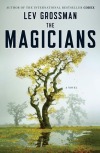











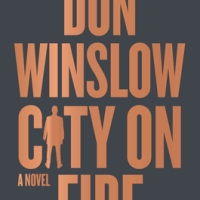
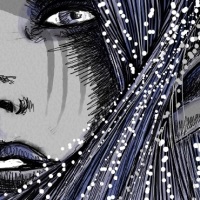
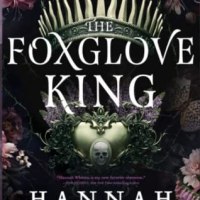
Oh yes Max Gladstone was the first author coming to my mind with this topic too.
LikeLike
Yep, the whole premise revolved around a god’s death. I was like, BINGO!
LikeLike
Great picks, as always! City of Stairs made my list as well (I’ve already seen it crop up a few times this morning), and I thought about Three Parts Dead & The Hundred Thousand Kingdoms, but both are still on my TBR pile.
LikeLike
I almost forgot City of Stairs, until I recalled they were the Divinities and then the role of the Kaj. Whew!
LikeLike
Wow, you both came up with so many examples, I fear my brain wasn’t working this week. Max Gladstone was my first thought, as all his books feature gods in one form of deadness or another!
LikeLike
Yeah, I still have to read Full Fathom Five. It’s nice though that you can read the books out of order and that they’re stand alones!
LikeLike
I’d completely forgotten the gods in “Promise of Blood”! (also, I need to pick up where I left as soon as possible…), and “The Infinite” looks like my kind of story so… thanks! 🙂
LikeLike
I finished the last book The Autumn Republic a couple months ago, so it was still fresh in my mind 🙂
LikeLike
Great list. I also went with Gladstone – I did wonder if I was cheating but as he’s on a few lists I guess not 😀
Nice going with the Grim Company. My brain wouldn’t really co-operate this week. I knew there were books on my lists with dead Gods but they just wouldn’t become clear no matter how much I looked at the names!
Lynn 😀
LikeLike
Nah no way it’s cheat – the book even starts off with the death of a god, so I think we’re golden, heh heh 😉
The Grim Company I think I would have missed, if I hadn’t just finished reading Sword of the North and it refreshed my memory of the world 🙂
LikeLike
I can’t remember what you thought of Peek, cos I wanna read it now
LikeLike
I didn’t love it, but I didn’t hate it either. It probably wasn’t my type of book, to be honest. It might work very well for others, unfortunately, just not for me.
LikeLike
I read your review and it seems like those, awesome blurb, book, eh
LikeLike
Amazing post. You guys outdid yourself this week with what I thought would be a tough one. 🙂
LikeLike
This week’s was okay…LAST week’s was tough for me.
LikeLike
You guys make the most epic lists! It always makes me excited about all the books I have yet to read. This was a good reminder to add Tankborn to my TBR list in particular – I had read some promising sounding reviews but forgot to make note of it somewhere.
I thought about just having a list of all the gods you can potentially kill in Dragon Age as an entry, haha. Or, beings aspiring to Godhood at least. There’s getting to be quite a lot of them, though I guess it depends on how you define a ‘god’. I figured it was time to give Mass Effect some love, though 😛
LikeLiked by 1 person
Wow, this list is seriously intense. I like the GIFs too! I think it’s fine to pick gods that aren’t technically dead (maybe people think they are, or they die later in the book/series) because…otherwise my list would be like one book. HA!
LikeLike
LOL. I agree. Had to have a little open interpretation there.
LikeLike
One of the fist books that came to mind was The Promise of Blood. I remember the end of the very well.
Yeah! God Of War! One of my favorite games! I’ve always wanted to check out the novels.
LikeLiked by 1 person
Ironically enough, today Audible was advertising it because it’s Pac-Man’s 35th anniversary, so they listed some gaming related audiobooks. God of War was one of them. The books aren’t too bad.
LikeLike
Yeah, the end of Promise of Blood was pretty epic. Poor Taniel.
LikeLike
Someone else who read Preacher?!? Wow.
Saint of Killers is the best creation in comic book history. Not sure how much I still care about the rest of the series. But Saint of Killers? Bad. Ass.
LikeLike
Who HASN’T read Preacher? 😛
Seriously, one of my all time favorite comics/graphic novels series.
LikeLike
I could only think of a total of one this week (City of Stairs) so I am in awe and bow to y’alls mastery of all that is dead and god-like. Hundred Thousand Kingdoms is the only other one on here I’ve read and its a really good example as well!.
LikeLike